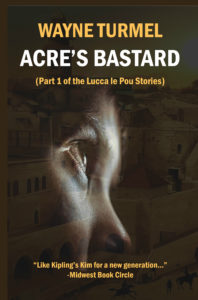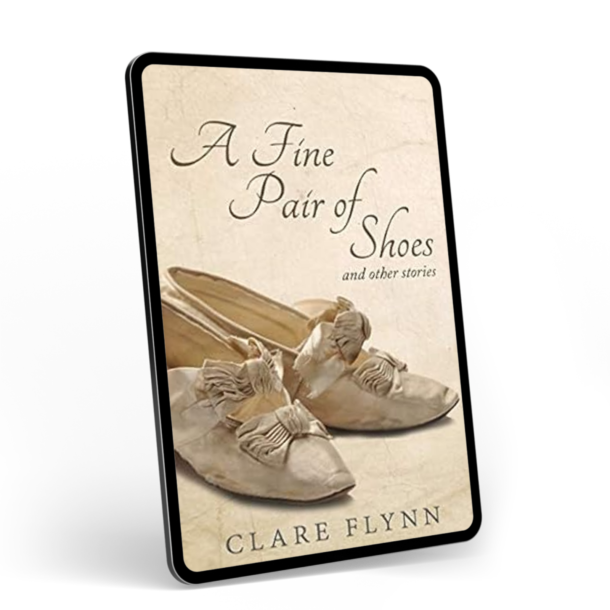I’m delighted to welcome Wayne Turmel onto the blog today. Wayne noticed my latest novel The Chalky Sea was partly set in Canada and features a Canadian main character so offered to host me on his blog and I decided to return the compliment.
Where do you live, Wayne, and what do you do when you’re not writing?
I was born and raised in a small town in Canada but now live and write in the Chicago area. I came to the US to pursue a career as a stand-up comedian, but the wife and child (The Duchess and Her Serene Highness) insisted on eating so I became involved in the corporate training and development area. When I’m not writing, I am just another typical mid-fifties white guy—I enjoy watching sports, reading just about anything, and the occasional cigar with some good tequila. You can learn more about the wonder that is me at http://wayneturmel.com/about-wayne/ and about both my fiction and non-fiction at https://www.amazon.com/Wayne-Turmel/e/B00J5PGNWU/
Give me a brief picture of your personal journey as a writer
I’ve written my whole life, first the comedy for my standup act, then blogs, articles and eight or so books for my professional career, and now historical fiction. It often seems disjointed, but looking back it was more linear than I want to admit. I’d prefer it to seem mysterious…..
What do you do to keep the inspiration flowing?
I think the defining trait of my personality is curiosity. When I was little, I used to drive adults crazy with my constant questioning. The two things I always have to know are “What if…” and “Why?” Especially with my fiction, every piece—whether a novel or a short story—begins with one of those questions. Acre’s Bastard took root when I stood in front of the ruins of the Crusader Hospital in Jerusalem and asked myself, “what in #%#@$% were they thinking?” Years later, I wondered, “what if Kim took place in the Crusades?” The two got smooshed (highly technical writer term) into the story it is now.
Mark Twain said “Most writers regard the truth as their most valuable possession, and therefore are most economical in its use.” – How readily do you use truth in your writing?
Far be it from me to argue with Twain. I think it’s critical to separate facts and truth. As a historical novelist, the facts are important… but you can’t possibly know them all, and relying on them slavishly can make for a boring story which is the kiss of death. I’m less concerned with “did it happen exactly that way?” than with “could it have happened that way?” It’s a tough balance to strike, but at its core, even if the facts are in dispute, the truth of how humans act and react needs to be honoured. If it rings false on an emotional level, the facts won’t matter much to a reader.
Tell me about your latest book and why we should all buy it?
 Acre’s Bastard is quite literally Kipling’s Kim set in the crusades. Lucca the Louse is a 10 year old orphan boy, who gets caught up in espionage and winds up spying for the Crusaders against Salah-adin and the Saracens. It’s a very adult story (warning, bad things happen to kids in wartime) about a young boy, but it’s a grand adventure and has plenty of humour. It’s an adventure story first, so those who want an exciting story but maybe don’t know much about the time period or aren’t military history geeks will still enjoy it. I’ve won a couple of online awards for the story from unexpected places like “Chill With a Book” and the Illinois Library Association. In fact, my most enthusiastic readers have been women who start the conversation with, “ I don’t usually like stories like this but…” I think they just want to snuggle Lucca and keep him safe.
Acre’s Bastard is quite literally Kipling’s Kim set in the crusades. Lucca the Louse is a 10 year old orphan boy, who gets caught up in espionage and winds up spying for the Crusaders against Salah-adin and the Saracens. It’s a very adult story (warning, bad things happen to kids in wartime) about a young boy, but it’s a grand adventure and has plenty of humour. It’s an adventure story first, so those who want an exciting story but maybe don’t know much about the time period or aren’t military history geeks will still enjoy it. I’ve won a couple of online awards for the story from unexpected places like “Chill With a Book” and the Illinois Library Association. In fact, my most enthusiastic readers have been women who start the conversation with, “ I don’t usually like stories like this but…” I think they just want to snuggle Lucca and keep him safe.
If you could wave a magic wand and change something about your writing career what would it be?
I would actually have a writing career. To be able to work full-time on my fiction would be a dream come true. I used to think it would be to have an agent and a traditional publisher and all that, but now I would just like to have enough readers for that to be my focus. I actually do enjoy the promotion and selling part of it more than most authors.
What comes first – location, plot, characters?
Plot comes dead last. In my first novel, The Count of the Sahara, I had been obsessed for years with Byron de Prorok, a real-life archaeologist and lecturer and his rise and fall. The book started with a question: “What was it about him that he couldn’t stay out of his own way?” In the case of Acre’s Bastard, it began with the idea of what it must have been like to be a young child caught up in the Crusades… it was more time-and-location-driven. Then I invented Lucca, and the story came from there.
Tell me about your writing day.
Since I have to make a living, I fit my writing in between the cracks of my life. I do have a unique process though, and have written this way since high school. I actually day-dream my chapters until I have them down, then sit and transcribe them in long writing sessions. I can often do a 3500 word chapter in a single Saturday afternoon, but it might take me two weeks of running on the treadmill to come up with the details. Oh, and caffeine. Lots of caffeine.
Anthony Burgess once said “Literature is all, or mostly, about sex”. How true is that of your books?
Writers are fond of coming up with pithy statements like that. I don’t think literature is about sex any more than life is. However, literature is about life so sex is certainly part of the whole and needs to be treated honestly. Actually, given what a lecher I am, my work has been shockingly free of actual sex. There’s one aborted (and pretty funny) make-out scene in The Count of the Sahara, and Lucca is driven from the orphanage by an attempted sexual molestation, (decidedly not funny and a little disturbing) but I haven’t written a really steamy sex scene yet….. darn it.
Who or what has been the greatest help to you as a writer?
That’s easy; other writers. Being a voracious reader my whole life, I’ve learned what I like and what I don’t, what I should aspire to and what to avoid. So, to Hunter S Thompson and Robert Louis Stevenson and the rest of you, I’m eternally grateful. Then there are other writers today. I belong to a writer’s group (Naperville Writers Group, here’s your shoutout) where I get feedback on my works in progress, as well as inspiration. It also gets me out of the house and out among real human beings once a week, so The Duchess will tell you that’s probably a bonus. Plus, meeting people through my historical fiction blog at wayneturmel.com (that’s you, Clare) has brought authors from all over the world into my orbit, many of whom have become friends and colleagues.
What has been the hardest thing for you to overcome in becoming an author?
It’s walking the line between ego and humility. You need the ego to believe you have something to say and can actually complete a novel that people want to read, while accepting feedback and criticism. Especially as a self-published author, you don’t have someone with final authority to tell you that line is rubbish, or that you really do have to fix that typo before you print. You can’t believe everything you do is golden, but you must believe it could be.
If you could pick one of your characters to spend some time with, who would it be and why?
I would love to meet Byron de Prorok and just find out what makes him tick. He was so smart and charming and also a pathological liar and a drunk… basically he’d be exhausting to have in your life, but probably amazing fun at a dinner party.
What are you working on now – or next?
I’m hard at work on the sequel to Acre’s Bastard. I’m not done with Lucca and his friends quite yet. I also have a business book, The Long-Distance Leader that will be coming out in the spring of 2018 from Berret-Kohler publishers.
Thanks for giving us an insight into your life and your books, Wayne, and good luck with the sequel.


0 Comments